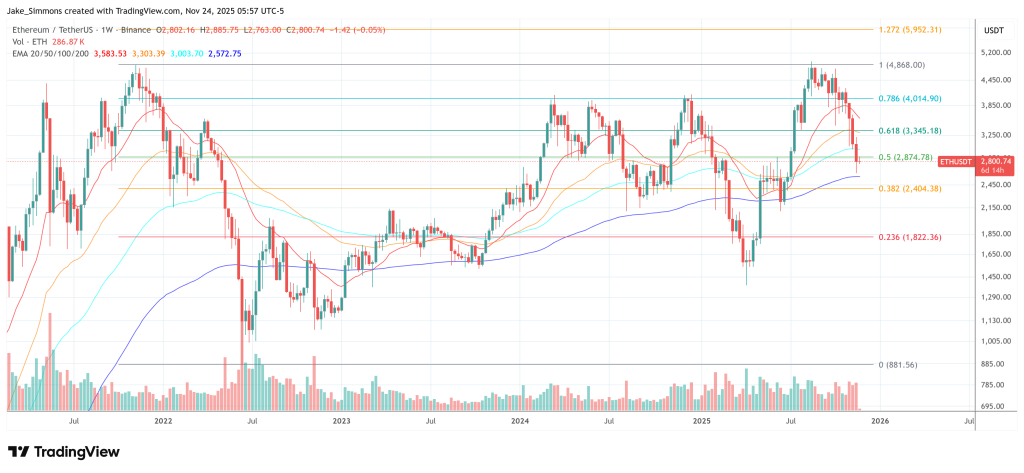
Ethereum co-founder Vitalik Buterin is sounding the alarm over X’s new “indicate which country the account is from” transparency tag, arguing that the functionality will be quickly compromised by identity theft while exposing some users to unacceptable privacy risk. X a récemment étendu sa surface « À propos de ce compte », permettant aux utilisateurs de voir des métadonnées telles que le pays ou la région d’un compte ainsi que les détails de création, une démarche que la plateforme positionne comme un outil contre la manipulation et les comportements inauthentiques.
Ethereum founder sounds the alarm
Buterin’s first message recognized the possibilities for short-term increases, but described the system as fragile in the face of adverse pressure. “In the short term, this will have many positive effects,” he writes. He then predicted that sophisticated operators will adapt faster than the platform can strengthen the signal: “sophisticated actors will find ways to pretend to be from countries they are not,” pointing to the laudable passports, phone numbers, and IP infrastructure that can be used to fabricate plausible provenance.
His basic statement about asymmetry was straightforward: “Getting a million accounts with a fake location will be moderately difficult; getting a single account with a fake location and then growing it to a million followers will be easy.” » According to him, the feature will move from authenticity checking to theater, with foreign influence accounts displaying Anglosphere tags to amplify credibility: “In six months, political troll accounts based on (a random Eurasian country) with names like ‘Defending Western Civilization’ or whatever will all have ‘US’ or ‘UK’ as their location tags.
The Ethereum founder emphasized that he was describing incentives, not endorsing them: “It’s what I think will happen, not what I wish for. What he wants instead is a provenance system that gives “more visibility into how people in different communities think about different issues, in a way that isn’t easy to spoof,” and that defines communities through broader, emerging evidence rather than “a narrow set of highly readable identifying information like countries.”
He concluded that “it will not be easy to make such a system robust against adversaries”, a criticism consistent with the cryptographic security view that identity signals degrade once attackers can purchase or synthesize them on a large scale.
Shortly after, the Ethereum founder sharpened his objection to consent and security. “I’ve thought about this more and think the commenters are right that revealing the country non-consensually without providing an opt-out option (not even ‘stop using your account’) is wrong,” he wrote.
He noted that national-level disclosure is generally non-identificatory, but cautioned that extreme cases are important: “There are some people for whom even a few leaks are risky, and they should not have their privacy retroactively violated without recourse.” “Privacy advocates on
X has already faced questions over accuracy and implementation, with reports that some country tags appeared incorrect and the platform adjusted visibility while promising fixes. This instability reinforces the Ethereum founder’s warning that if tags are inferred from IP, app store or telecommunications data, they are vulnerable not only to deliberate impersonation, but also to routine distortions such as using a VPN, swapping SIM cards or reselling accounts.
At press time, Ethereum was trading at $2,800.

Featured image created with DALL.E, chart from TradingView.com

Editorial process as Bitcoinist focuses on providing thoroughly researched, accurate and unbiased content. We follow strict sourcing standards and every page undergoes careful review by our team of top technology experts and seasoned editors. This process ensures the integrity, relevance and value of our content to our readers.




